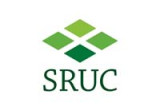New research to shed light on Light Leaf Spot

Light leaf spot is the number one disease threat to oilseed rape crops and can cut yields by up to a tonne per hectare. SRUC researchers will also look to pin down the best timings and treatments to manage this perennially tricky problem. The £114,000 project is funded by industry body HGCA. It will be […]
Neonicotinoid restrictions shroud crop future in uncertainty
The NFU believes that the decision to restrict the use of neonicotinoids, which comes into force from Sunday (December 1), is not justified by the available scientific evidence and could have serious consequences for farmers’ ability to grow produce sustainably. Evidence published in the summer shows that since the neonicotinoids were introduced in the UK […]
Putting biological nitrogen fixation to work for smallholder farmers
A pan-African project aimed at improving legume technologies to counter the debilitating impact of low-nitrogen soils on agricultural production is generating higher yields and new income streams for smallholder farmers. Since it began in 2009, N2Africa set out to increase the adoption of improved nitrogen fixing legumes – specifically soybean, cowpea, groundnut and common […]
Yields of new varieties of agricultural crops continue to increase

Despite recent concerns that important crops in high-yielding regions have reached their production maximum, the rise in yield potential of new cultivars does not yet level off in the Netherlands. The fact that plant breeding can still lead to increases in production has therefore been shown by this research at Wageningen University. Businesses, consultants and […]
Double haploids, gene markers – how do modern breeding technologies really benefit farmers?

Terminology such as double haploids and gene markers are commonly used to describe how some of these processes bring new and exciting varieties onto the marketplace. However do we really understand what this technology does and how it translates to real practical benefits on farm? To find out more come along to the Limagrain stand […]
DuPont Pioneer expands herbicide tolerant sunflower line-up

DuPont Pioneer announced today the signing of a non-exclusive multi-year agreement with BASF, in which BASF will license Clearfield® Plus herbicide tolerance for sunflowers to DuPont Pioneer. The agreement allows DuPont Pioneer and its affiliates to develop hybrids tolerant to BASF Clearfield® Plus herbicides for commercialization in Europe, Africa, Asia, North America and South America. […]
Savvy marketing needed to shift oat surplus

Following the wet autumn and winter of 2012 in which many growers struggled to plant crops as normal and also resulted in large swathes of partially established crops failing. Many growers switched to oats for their fit within rotations and because there was seed available. Some growers will have secured buy-back contracts offering premiums or […]
Nitrogen Ideas Lab

Three teams of UK and USA researchers will begin a programme of novel research to revolutionise current farming methods by giving crops the ability to thrive without using costly, polluting manufactured fertilisers. The three highly innovative projects include: searching the planet for a lost bacterium with special, sought-after properties; using synthetic biology to create a […]
The Greener Revolution – New technology to lessen dependence on fertilisers and cut farming costs

This patented technology enables all crops to take up nitrogen from the atmosphere rather than from expensive and potentially environmentally damaging nitrogen based fertilisers. The benefits are potentially massive: less reliance on nitrogen fertilisers; reduced nitrogen pollution of the environment from the use of nitrogen based fertilisers; and reduced fertiliser costs […]















